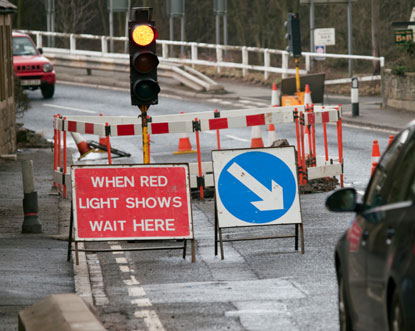By Richard Johnstone | 14 May 2013
The UK economy would be boosted by as much as £100bn a year if the country’s transport and energy infrastructure matched standards in Europe, the Centre for Economics and Business Research said today.

Substandard infrastructure cost the economy £78bn every year between 2000 and 2010, the analysts said. They estimated that improvements could be worth an additional 5% of gross domestic product or £100bn a year by 2026.
The report was undertaken on behalf of the Civil Engineering Contractors Association, which used the results to urge the government to back a new ten-point plan to boost construction.
Ahead of the Spending Review on June 26, the association said ministers should create an independent body to identify ‘strategic’ infrastructure developments needed to meet future challenges.
It also called on Chancellor George Osborne to set minimum thresholds for new infrastructure construction activity. It should never fall below 0.8% of GDP and should be set at or above 1% of GDP over the next five years, to close the infrastructure gap between the UK and countries like Switzerland and the Netherlands.
The CECA also urged ministers to launch a national programme of ‘intensive improvements’ to local roads, which could be paid for by councils' prudential borrowing powers.
A proposal for the Public Works Loan Board to offer a reduced interest rate should also be extended.
CEBR economist and report author Daniel Solomon said the UK had 'paid a high price for having infrastructure which has fallen short of our competitors’.
He added: ‘We estimate GDP might have been about 5% higher over the past decade if the UK’s infrastructure quality had been in line with countries like Switzerland and the Netherlands.
‘This research has shown that improving UK infrastructure quality could help us to catch up with some of the world’s most competitive countries, giving UK businesses the connectivity they need to add real value to the economy.’
CECA director of external affairs Alasdair Reisner said it was ‘not acceptable to pass our infrastructure deficit on to the next generation’.
He added: ‘We must act now to address this problem, ensuring that construction activity aimed at improving our transport and utility networks never again falls below the 0.8% of GDP threshold at which serious detrimental impacts are felt by the economy.’




















